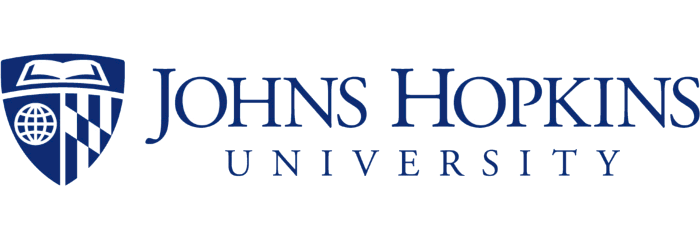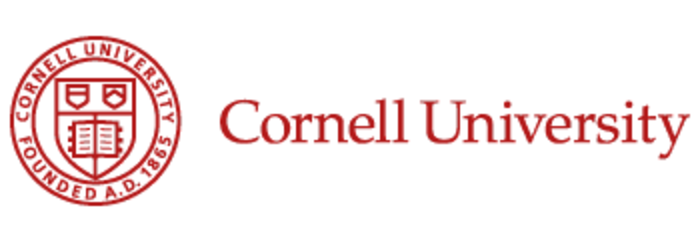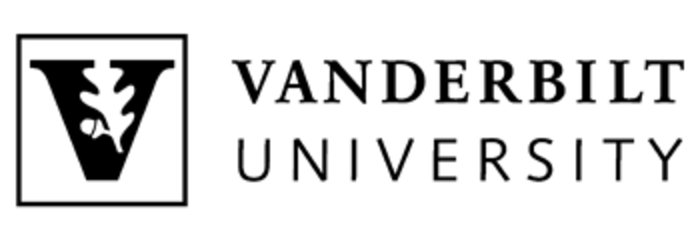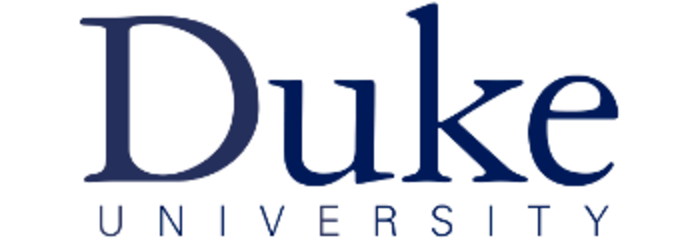
25 Best Colleges for Math 2020
The 25 schools on this list offer the top Bachelor's Degrees in Mathematics, based on median salary one year out of college. Massachusetts Institute of Technology tops the list with a starting salary of $120,300 for Bachelor's in Mathematics graduates and a median debt of $8,219. Duke University, #5 on the list, has the lowest median debt of these 25 schools, at $5,500. Median salaries for the top 25 schools range from $54,000-$120,300.
Tuition, median salaries, and median debt were reported by the U.S. Department of Education in November 2019. View our methodology for more details about these rankings or read more about the top-ranked schools.
| School | Annual Tuition | Median Debt | Median Salary |
|---|---|---|---|
| Massachusetts Institute of Technology | $60,156 | $8,219 | $120,300 |
| Johns Hopkins University | $63,340 | $15,500 | $78,600 |
| Cornell University | $66,014 | $14,308 | $76,300 |
| Vanderbilt University | $63,946 | $15,696 | $75,500 |
| Duke University | $65,805 | $5,500 | $74,700 |
| Northwestern University | $65,997 | $14,350 | $71,000 |
| University of Chicago | $66,939 | $17,754 | $70,700 |
| Rensselaer Polytechnic Institute | $61,884 | $23,250 | $70,500 |
| Boston College | $67,680 | $16,500 | $65,700 |
| Northeastern University | $63,141 | $27,750 | $63,700 |
| University of Michigan - Ann Arbor | $58,072 | $16,500 | $61,900 |
| Amherst College | $67,280 | Not Reported | $61,000 |
| University of Virginia | $58,014 | $20,250 | $60,700 |
| Southern Methodist University | $64,460 | $23,250 | $60,500 |
| Bowdoin College | $64,910 | Not Reported | $59,400 |
| Hamilton College - NY | $65,740 | $18,350 | $59,200 |
| CUNY Bernard M Baruch College | $15,414 | Not Reported | $58,400 |
| Macalester College | $64,908 | $19,828 | $57,300 |
| Fairfield University | $56,360 | $23,250 | $55,900 |
| Drexel University | $60,663 | $26,000 | $55,400 |
| Rutgers University | $36,001 | $23,382 | $55,300 |
| DePaul University | $44,460 | $24,750 | $54,700 |
| University of Maryland - College Park | $40,306 | $19,125 | $54,100 |
| University of Minnesota | $36,402 | $22,464 | $54,100 |
| Indiana University - Bloomington | $40,482 | $22,250 | $54,000 |
2020 Best Colleges Highlights
Learn more about the top colleges for a Bachelor's in Mathematics degree. You can also read student reviews of each school by clicking on the stars. Although student reviews were not used as a ranking factor in this list, we provide ratings and reviews so students can consider the experience of alumni in their decision-making process.

At Massachusetts Institute of Technology, there are three undergraduate mathematics programs for students to choose from which lead to a Bachelor of Science in Mathematics degree: General Mathematics, Applied Mathematics, and Pure Mathematics.
General Mathematics majors combine their studies with a related field, such as economics, management, or physics, and typically study both theoretical and applied mathematics. Required courses include Differential Equations and Linear Algebra, as well as seven additional 12-unit subjects beyond calculus and differential equations.
The Applied Mathematics program focuses on propagation, equilibrium, stability, optimization, computation, statistics, and random processes. Students in this program are required to complete courses in Differential Equations, Complex Variables with Applications, Linear Algebra, Principles of Discrete Applied Mathematics, and Principles of Continuum Applied Mathematics. They also must take four electives: at least one from the Combinatorics, Computer Science, and Probability and Statistics category and one from the Numerical Analysis, Physical Mathematics, and Nonlinear Dynamics category.
Students in the Pure Mathematics program study basic mathematical concepts and structures, including analysis, algebra, and geometry. Required courses include Differential Equations, Real Analysis, Algebra I & II, and Introduction to Topology, as well as one of three analysis courses, and one of the six available seminars.
There are numerous summer programs, math undergraduate clubs, and competitions for students in the program to take advantage of, as well as international study opportunities.

There are two different undergraduate options at Johns Hopkins University for students pursuing a bachelor's degree in mathematics: a Bachelor of Arts program and a combined Bachelor of Arts/Master of Arts in Mathematics. The BA program requires completion of courses in calculus, linear algebra, analysis, topology, partial differential equations, differential geometry, algebraic geometry, representation theory, and dynamical systems. Students must take two terms of a subject of their choice that applies to mathematics, such as physics, chemistry, economics, philosophy, computer science, and applied mathematics & statistics.
The combination BA/MA program allows advanced students to acquire both degrees within a four-year period. Those who are admitted into the program must be candidates for departmental honors in the mathematics major and must complete four graduate courses offered by the department. Students are also required to have a faculty member of the department submit a letter of recommendation in order to be accepted.
There are several extracurricular opportunities for students to take advantage of, including city internships, the Department of Energy Summer Scholars Program, the French Federation of Mathematical Games, ForagerOne research opportunities, the JPMorgan Chase Tech Connect Program, and the Amgen Scholars Program.

Mathematics majors at Cornell University can adapt their degree to their interests, with the option to focus on either theoretical or applied mathematics. There are numerous concentrations available for mathematics majors, including Applied Mathematics, Computer Science, Economics, Mathematical Biology, Mathematical Physics, Operations Research, and Statistics. An individual concentration program can also be developed in consultation with a student’s major advisor. Students may also choose to double major in mathematics and another subject in the physical, biological, or social sciences.
Prior to acceptance into the math major, students must complete coursework in linear algebra, multivariable calculus, and computer programming. Once students are admitted into the major, they will take classes such as Nonlinear Dynamics and Chaos, Computational Algebra, Physically Based Animation for Computer Graphics, Statistics and Probability, Differential Equations, Robot Learning, Applied Logic, and Game Theory.
During their final year, mathematics majors complete a senior thesis through creative and independent work, usually focusing on areas in the field not covered in-depth in coursework.

Vanderbilt University's Department of Mathematics offers undergraduate students three tracks for majoring in mathematics: Standard, Applied, and Honors. The Standard track requires 32 credit hours in the subject, including a calculus sequence, and study of linear algebra and differential equations.
The Applied track caters to students in the School of Engineering who choose to double major in mathematics. Applied students must complete at least 29 credits in mathematics. In addition to calculus and linear algebra, students in this track are required to complete six credit hours of advanced mathematics-based science or engineering courses.
Students who are interested in moving on to graduate studies, or are interested in graduating with departmental honors, follow the Honors Track, which includes completion of a senior thesis. Students in the Honors track also take four advanced courses in algebra, analysis, topology, and geometry.
The Department of Mathematics offers roughly 150 classes each year and graduates over 100 students annually. Vanderbilt also offers a combined BA/MA program that allows students interested in a master’s degree to obtain both degrees in a period of five years. Students can also choose to participate in several extracurricular opportunities such as an Undergraduate Seminar in Mathematics, Vanderbilt’s Actuarial Science Club, Vanderbilt’s Student Chapter of the Association for Women in Mathematics, and more.

Duke University offers two undergraduate degrees in mathematics: a Bachelor of Science and a Bachelor of Arts. Both degrees require prerequisites in calculus, linear algebra, and applications, as well as core courses in abstract algebra or algebraic structures, and advanced calculus or basic analysis. Students pursuing a Bachelor of Science choose from additional courses in complex analysis, statistics, topology, differential geometry, and mathematical finance.
In the BA track, there are no required science courses, but those acquiring a BS degree must also choose two science courses from options in physics, statistical science, economics, electrical and computer engineering, computer science, biology, and chemistry. It is recommended that students who are interested in attending graduate school in either mathematics or the sciences choose to pursue the Bachelor of Science option.
Undergraduates can participate in several research opportunities and can choose to complete a senior research project to graduate with distinction. There are three summer research programs of varying lengths, including the collaborative eight-week DOmath program, the six-week PRUV Fellow Program which provides students with a stipend and on-campus living, and the ten-week Data+ research experience for students interested in data-driven approaches to interdisciplinary challenges. Students may also begin a research project through one of several seminar courses or through an independent study in collaboration with a faculty mentor. Mathematics competitions are another opportunity for students to utilize their education outside the classroom, including competitions at Virginia Tech and Putnam.